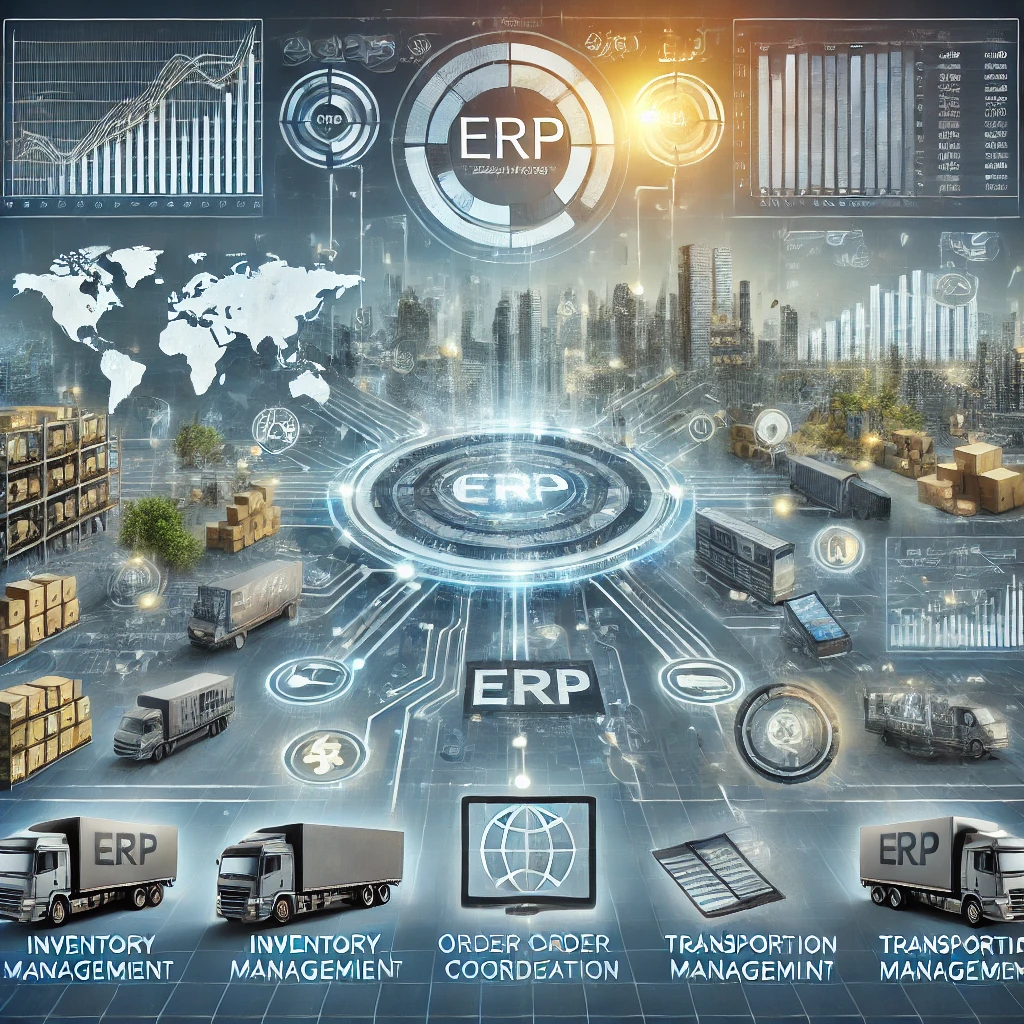Streamlining Operations with ERP Integration for Logistics: A Comprehensive Guide

What is ERP Integration for Logistics?
ERP integration for logistics refers to the process of connecting a company’s ERP system with its logistics management software and processes. This integration typically involves:
- Synchronizing inventory data across systems
- Automating order processing and fulfillment
- Integrating transportation management
- Connecting warehouse management systems
- Streamlining financial processes related to logistics
- Enhancing visibility across the supply chain
- Facilitating real-time data exchange
- Enabling advanced analytics and reporting
By integrating ERP with logistics operations, businesses can create a cohesive ecosystem that enhances efficiency, accuracy, and decision-making capabilities.

Benefits of ERP Integration for Logistics
- Improved Data Accuracy: Eliminate manual data entry errors and ensure consistency across systems.
- Enhanced Visibility: Gain real-time insights into inventory, orders, and shipments across the entire supply chain.
- Increased Efficiency: Automate processes and reduce manual interventions in logistics operations.
- Better Decision Making: Access comprehensive data for more informed strategic and operational decisions.
- Cost Reduction: Optimize inventory levels, reduce carrying costs, and improve resource allocation.
- Improved Customer Service: Provide accurate order status and delivery information to customers.
- Streamlined Compliance: Easily generate reports and documentation for regulatory compliance.
- Scalability: Adapt more quickly to business growth and changing market conditions.
Key Areas of ERP Integration in Logistics
When implementing ERP integration for logistics, consider the following key areas:
- Inventory Management: Synchronize stock levels across warehouses and sales channels.
- Order Management: Streamline order processing from receipt to fulfillment and invoicing.
- Warehouse Management: Integrate picking, packing, and shipping processes with ERP data.
- Transportation Management: Optimize route planning and carrier selection based on ERP data.
- Procurement: Align purchasing processes with inventory levels and demand forecasts.
- Financial Management: Integrate logistics costs and revenue data for accurate financial reporting.
- Customer Relationship Management: Provide sales and customer service teams with logistics data for better customer interactions.
- Supplier Management: Streamline communication and transactions with suppliers.
- Analytics and Reporting: Generate comprehensive reports combining ERP and logistics data.
- IoT Integration: Connect IoT devices in logistics operations with ERP systems for real-time data collection.

Implementing ERP Integration for Logistics: Best Practices
- Define Clear Objectives: Establish specific goals for your ERP integration project, aligning them with overall business objectives.
- Conduct a Thorough Assessment: Evaluate your current systems, processes, and data flows to identify integration points and potential challenges.
- Choose the Right Integration Approach: Decide between point-to-point, middleware, or API-based integration methods based on your needs and existing infrastructure.
- Ensure Data Quality: Clean and standardize data across systems before integration to ensure accuracy and consistency.
- Plan for Scalability: Choose integration solutions that can grow with your business and adapt to changing technologies.
- Prioritize User Experience: Design integrated systems with user-friendly interfaces to encourage adoption.
- Implement Strong Security Measures: Ensure that data remains secure throughout the integration process and during ongoing operations.
- Provide Comprehensive Training: Invest in thorough training for all staff to ensure effective use of the integrated systems.
- Start with a Phased Approach: Begin with critical processes and gradually expand the integration to other areas.
- Continuously Monitor and Optimize: Regularly assess the performance of your integrated systems and make improvements as needed.

Challenges in ERP Integration for Logistics
While ERP integration offers numerous benefits, it’s important to be aware of potential challenges:
- Complexity of integrating legacy systems
- Data inconsistencies across different platforms
- Resistance to change from employees
- Initial costs and resource requirements
- Ensuring real-time data synchronization
- Maintaining system performance during integration
- Addressing security concerns in data transfer
Careful planning and execution can help overcome these challenges and ensure a successful integration.
Emerging Trends in ERP Integration for Logistics
As technology evolves, new trends are shaping the future of ERP integration in logistics:
- Cloud-based ERP solutions for enhanced accessibility and scalability
- AI and Machine Learning for predictive analytics and process automation
- Blockchain integration for secure and transparent supply chain transactions
- Low-code/No-code platforms for easier customization and integration
- Mobile ERP applications for on-the-go access to logistics data
- Advanced APIs for more flexible and robust integrations
Staying informed about these trends can help you choose forward-thinking solutions that will serve your business well into the future.
Conclusion
ERP integration for logistics is a powerful strategy for streamlining operations, improving visibility, and enhancing decision-making capabilities across your supply chain. By carefully planning your integration approach, addressing potential challenges, and following best practices, you can create a cohesive ecosystem that drives efficiency and competitiveness in your logistics operations.
For businesses looking to optimize their logistics operations through ERP integration, Linbis logistics software offers seamless integration capabilities with leading ERP systems. With its robust API, pre-built connectors, and expert integration support, Linbis enables businesses to create a unified logistics ecosystem that enhances efficiency, accuracy, and visibility across the entire supply chain. Experience the power of fully integrated logistics operations with Linbis.
